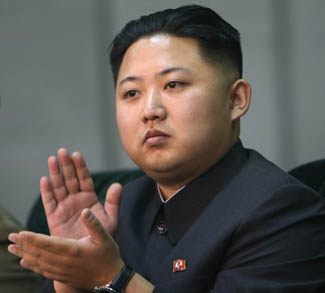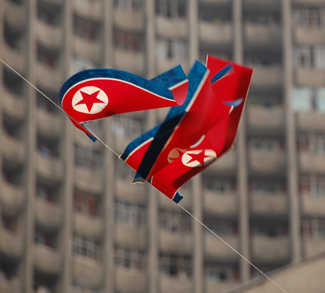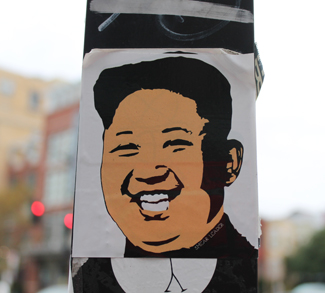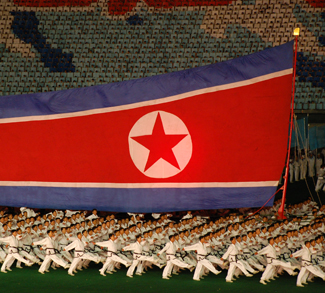For those in need of a refresher, here is the Cold War paradigm underpinning China-North Korean relations up until now. Historically speaking, a shared ideology has been at the core of their relationship. The two countries fought a war together in 1950 and have stood shoulder-to-shoulder against encroaching U.S. military power in East Asia throughout the sixty years that followed.
China relinquished this shared ideology in everything but name when it opened up in the eighties and nineties, leaving North Korea to languish as the last Communist bastion in an increasingly interconnected and global system; and so the ‘hermit state’ was born. Yet even in the absence of ideological solidarity, North Korea was still a useful ally for Beijing: it provided a buffer that kept U.S. military power away from the Chinese border; its stability precluded millions of refugees from flooding into China; and it afforded China prestige on the world stage, as Beijing was frequently cast as the only outside actor that could ‘get through’ to Pyongyang and temper its extreme behavior.
But given the current geopolitical realities in East Asia, do these mutual interests still hold up, or has China’s support for North Korea crossed a threshold where it does more harm than good?
The most critical difference between then and now might just be that the Chinese government is no longer ‘getting through’ to North Korea, which is evident from the various ways in which Pyongyang is harming Chinese interests. Not only is Pyongyang risking a wave of proliferation in the region with its nuclear program, it’s also providing a handy justification for the U.S. military ‘pivot’ into East Asia. Since the latest crisis began, an assortment of military hardware has been moved into the area, including the USS John McCain anti-missile destroyer, stealth B2 bombers, F-22 Raptors, and a Terminal High Altitude Area Defense System (THAAD) in Guam. The Japanese government has also announced that it will permanently deploy Patriot anti-ballistic missiles in Okinawa in response to the crisis.
This all represents a further entrenchment of U.S. military assets in the region surrounding China; an area that the Chinese government has earmarked to become its sole military domain in the future. Moreover, given the fever pitch of North Korean rhetoric (going so far as to threaten pre-emptive nuclear strikes, for example), all avenues of diplomatic protest are cut off for Beijing, and it can only sit back and watch as the U.S., Japan, and South Korea organize a legitimate military response to North Korean provocations.
Given the North’s dire economic situation and persistent rumors of a split in its military ranks, China is just as much at risk of massive, destabilizing refugee flows across the North Korean-Chinese border as it ever was, despite decades of support for its internationally-isolated ally. Here is another aspect of China’s policy that might warrant a rethink: China’s culpability in perpetuating the systemic instability that is driving the latest crisis on the Korean peninsula. Chinese aid is always ‘no political strings attached,’ and as such, it has not pressed hard for the North to push through any kind of economic or political reforms. As a result, the population of the North is still desperately poor and its political system overly conducive to the kind of bombastic brinkmanship that we’re currently witnessing.
And finally, there’s the residual Cold War mindset of North Korea as a ‘buffer state’ against U.S. military power, a belief that assumes the current Chinese leadership prefers the status quo to a unified Korea. This is outdated thinking for two reasons. First, given the interconnected nature of the “Chimerica” economies and China’s growing confidence as a military power, it’s difficult to envision the two countries fighting a conventional war. Secondly, a unified Korean peninsula would remove the threat of North Korea, which would dramatically increase the security outlook for both South Korea and Japan. As a result, both countries would be less inclined to host U.S. forces, especially if doing so jeopardized their bilateral relationship with China.
As the international system transitions towards multipolarity, old worldviews will need to be renovated, and the China-North Korea relationship might just be one of them. After all, if China wants to solidify its credentials as a responsible stakeholder, it will have to step up and do its part to uphold regional security in East Asia.




